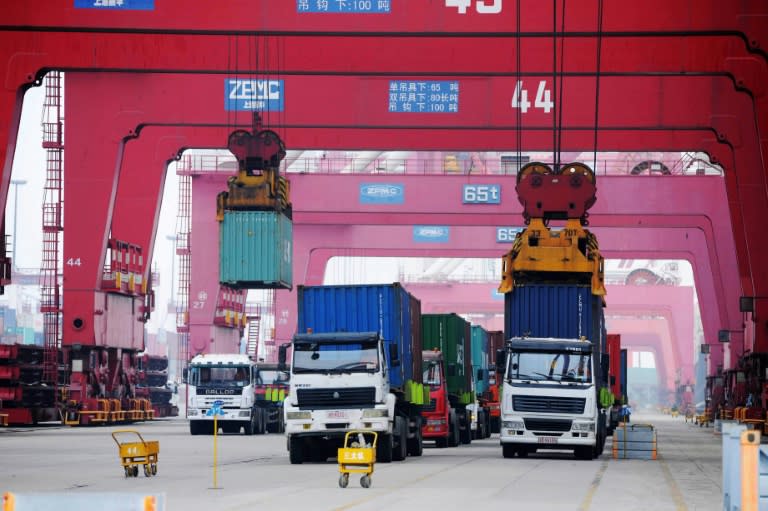China manufacturing index falls to more than 3-year low
Chinese manufacturing activity contracted at its fastest rate for more than three years in November, official data showed Tuesday, underlining weakness in the world's second-largest economy. China is a key driver of global growth and investors closely watch the Purchasing Managers' Index (PMI) -- which tracks activity in the factories and workshops sector -- as a barometer of the country's economic health. The government statistics bureau said the PMI fell to 49.6 in November – a reading above 50 signals expanding activity while anything below indicates shrinkage. It was the fourth consecutive month of contraction, the lowest figure since August 2012, and slightly below the economists' expectations. The statistics bureau blamed the disappointing figure on weak overseas and domestic demand and falling commodity prices, among other factors. "Facing downward pressures on the economy, companies' buying activities slowed," it said in a statement. China is the top global trader in goods and its manufactured items sell worldwide, so weak production data is seen not only as an indicator of its own growth but also the state of the global economy. China's economy expanded 7.3 percent last year, the slowest pace since 1990, as traditional growth drivers such as exports and investment increasingly run out of steam. Officials say growth decelerated to 6.9 percent in the July-September period, its slowest rate since the aftermath of the financial crisis. But even those statistics are widely doubted and many analysts believe the real rate of growth could be several percentage points lower. The government has turned to monetary loosening to stimulate growth, cutting interest rates six times over the last year. Analysts and Chinese politicians say the country needs to rebalance away from reliance on exports and fixed asset investment towards a consumer-driven economy. But state intervention struggled to halt a stock market rout this summer, increasing doubts over policymakers' ability to transition to a more market-based economy. - Property 'rebound'- An unofficial manufacturing survey released Tuesday by Chinese media group Caixin and information provider Markit, with a greater focus on smaller firms, also pointed to extended contraction. Its PMI survey was 48.6 for November, a slight rise from the previous month, fuelled mostly by stabilising output, the two firms said. Away from China's factories, an official gauge of non-manufacturing activity for November stood at 53.6, showing expansion. Julian Evans-Pritchard, an analyst with research firm Capital Economics, cited weak overseas demand as a drag on manufacturing, but said services were a bright spot. "The construction sector PMI rose for the second time last month, following a rebound in fixed investment growth in October," he said. China's property market has shown signs of recovery after the government this year took several aggressive measures to boost demand. New home prices in 100 major cities in China rose nearly three percent year-on-year in November, the fourth straight month of increase, according to a report by the China Index Academy. The rise was mainly driven by the 10 biggest cities, with price increases in many smaller conurbations far lower, it said. Analysts said the weak PMI will prompt Beijing to take further loosening measures. "With soft growth momentum and deflation pressures creeping up, we expect the authorities to further ease monetary policy," economists from Australian bank ANZ said in a note.




